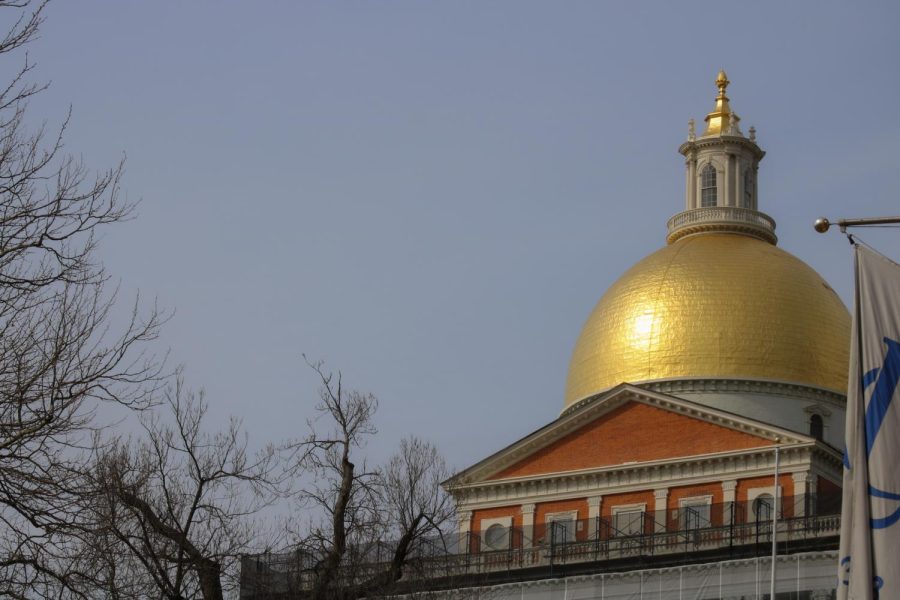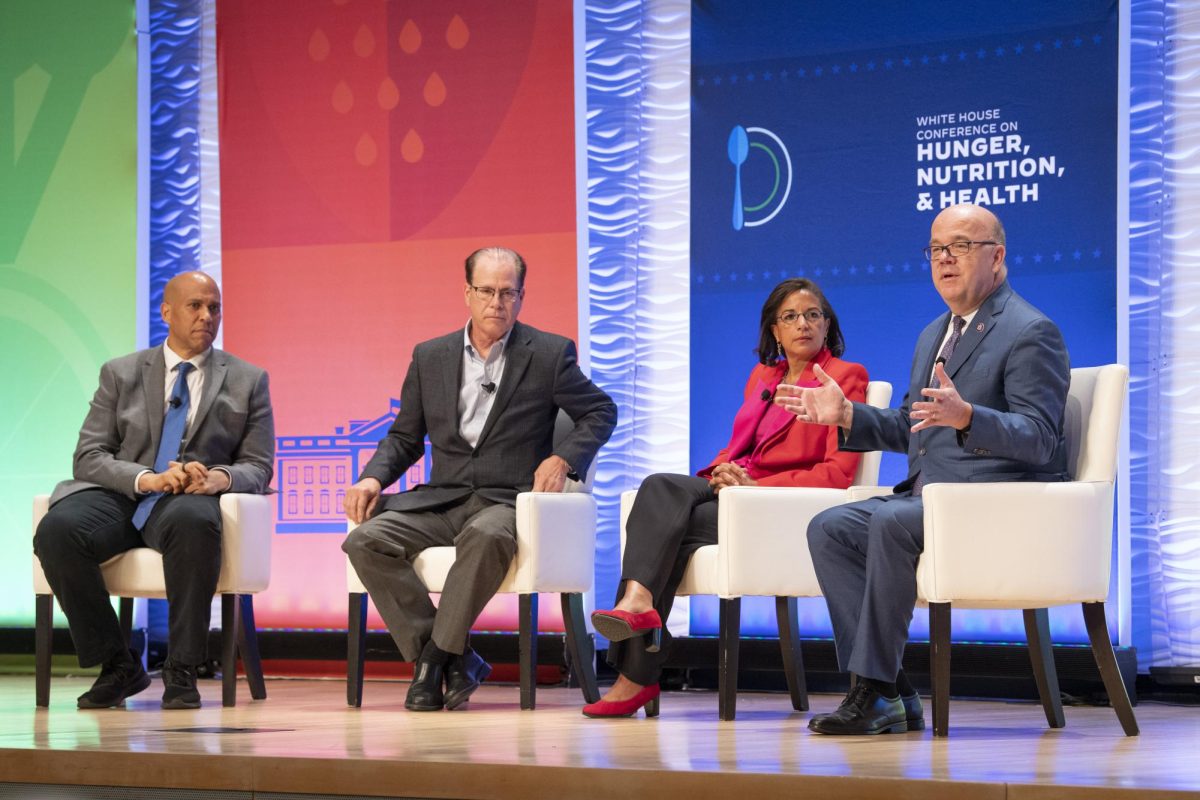With governor’s race still underway, experts weigh in on Baker’s reasons for not running for re-election
After seven years in office, Gov. Charlie Baker’s decision to discontinue his role opened up new possibilities and candidates for the governor’s seat. Photo credit Harriet Rovniak.
March 13, 2022
In early December 2021, Republican Gov. Charlie Baker announced he would not be running for re-election. He was joined in his choice to step down by Lt. Gov. Karyn Polito. After seven years in office, Baker’s decision to discontinue his role opened up new possibilities and candidates for the governor’s seat.
Polling completed by University of Massachusetts Amherst and WCVB in November 2021 found Baker was more popular with registered Democrats in the state. His approval rating with Republican voters was 41%, while it reached 65% with Democrats.
Politicians and experts believe the lack of support Baker has received from his own party pushed him not to seek re-election.
“There is nothing sexy about being a moderate,” said former Democratic New York Sen. David Carlucci. “Baker’s style might be good for governing. However, that [will] not translate to votes on Election Day.”
Massachusetts-based political consultant Brian Jencunas said Baker was not assured a win due to the lack of support from Republican voters and fellow politicians, despite his incumbent status.
“There’s never one single reason for a political decision, but it’s obvious Baker did not want a bruising, months-long primary with an uncertain outcome,” Jencunas said.
Many are unsurprised about Baker’s lack of popularity with local Republicans due to his turbulent relationship with former President Donald Trump. Baker made an effort to separate his 2014 campaign and governing approach from Trump’s administration. Jencuna said this move may have ostracized Baker from local Republicans and the GOP as a whole.
“Breaking with Donald Trump early, vocally and often made Baker popular with Massachusetts Democrats, but it also made him toxic with his own party’s base” Jencunas said.
In October 2021, Trump endorsed former state Representative Geoff Diehl, calling him “a true patriot” and Baker a “RINO,” or Republican In Name Only. Trump’s backing of another Republican candidate preceded Baker’s official announcement that he would not run again.
The tension between Trump and Baker falls into a national pattern. Trump also called out other governors who did not support his campaign to overturn the results of the 2020 presidential election.
Carlucci said Baker also lost popularity due to his moderate, bipartisan approach.
“In order to get things done, Baker has had to reach across the aisle,” Carlucci said. “This enrages the stalwarts and rank-and-file members of the Republican party.”
Removing Baker from the running will make for a less predictable governor’s race this fall. Diehl aside, other candidates running include State Attorney General Maura Healey, State Sen. Sonia Chang-Diaz and political newcomers Orlando Silva and Josh Caldwell for the Democratic primary, Chris Doughty for the Republican primary and independent candidate Dianna Ploss.
In an interview with The News, Healey said her focus is on the issues that directly impact locals across party lines.
“I’m going to be a governor for everyone,” Healey said. “I don’t think the people of Massachusetts care about labels so much as they care about results.”
Diehl has made a point of advocating for fellow members of the GOP.
“I welcome the announcement of new Republican candidates for Lieutenant Governor and Attorney General,” Diehl said in a statement March 1. “Republicans across Massachusetts are seeing the need for real leadership and are excited to run in what will be an incredibly strong election year for candidates who care about ensuring individual liberty.”
The deadline for candidates to enter the 2022 governor’s race is May 31, and the primary is Sep. 6. The outcomes of these events will set up circumstances for Massachusetts’ next gubernatorial election Nov. 8.
When asked how she believed a Democratic governor would benefit the state of Massachusetts, Healey emphasized approach over party once again.
“We need a governor who listens and who will bring people together to tackle the issues that are impacting our communities,” Healey said. “And we need a governor committed to equity and fairness.”








